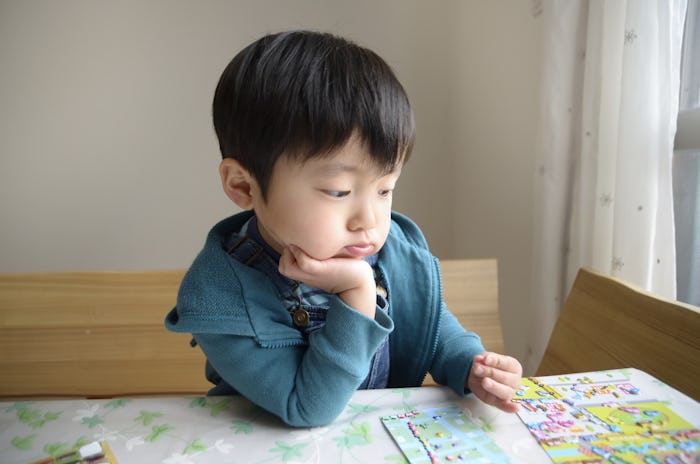Life

I can clearly remember my kid's first words, first step, and a hundred other firsts he has experienced in such a short amount of time. But I often wonder if he'll remember any of these magical events himself. Personally, I hope he remembers our bedtime snuggles and trips to the pumpkin patch. Then again, I wouldn't be upset if he forgets the time I swore at the person who cut me off in traffic. So, will my toddler remember their early years, and how will I know?
Fortunately, there are a few signs your toddler is starting to hold onto memories, and things you can do to help make those memories last. According to a July 2018 study published in the journal Psychological Science Journal, many memories we have before age 3 are actually fictitious. In other words, our brain combines information from photographs with stories people tell us about our childhood in order to create "memories" that actually aren't real. According to researchers at Emory University, a condition called childhood amnesia prevents youngsters from forming memories as children that last until adulthood.
Young children are way more likely to remember how something made them feel instead of specific details, though (like where or when something happened), according to Carole Peterson. This is especially true if a memory elicited a particularly strong emotion, like joy or fear. Another sure sign of memories being made, according to researchers at Emory University, is your child recalling details in a narrative. If they can tell you about an event in story form, their brains have created context for a memory, which can act like a net and catch it before it drifts away. So with all that in mind, here are some signs your toddler will remember the memories you're making right now, forever:
They Tell You Stories
As reported by Slate, children as young as 2 start getting better at organizing their experiences into memories. One of the main ways they do this is by processing these events. If your toddler starts telling you about their day during your evening commute, or at bedtime, it just might be a sign that they are starting to file memories away for future reference.
And according to a study published in the journal Early Education and Development, parents can help their toddlers make memories by reviewing what happened each day and talking about it in an excited and animated way.
They Cry When You Leave The Room
As memory researcher Conor Liston told ABC News, one sign that your toddler is starting to form memories is the onset of separation anxiety. Liston explains that while young babies might cry when they are alone, the development of object permanence — or memories of their mom or dad — don't happen until later on. Sadness associated with mom or dad leaving a room is one of the first signs that children are starting to remember who you are.
They Get Emotional About It
As Memorial University of Newfoundland researcher Carole Peterson told Today's Parent, kids are as much as three times more likely to remember events that are "infused with emotion, either positive or negative." Which seems great when you consider happy memories like getting their first pet, but kind of sucks when you think about all of the times you, as a parent, accidentally lost your sh*t. So, if your toddler gets a bit emotional when talking about something that happened to them, it might be a sign they will remember that event for years to come.
They Remember Details
According to researchers at Emory University, at some point during childhood memories before age 3 seem to fade away. Psychologists call this phenomena "childhood amnesia," and they are trying to pinpoint when it happens by following the same kids and their memories from toddlerhood to their teens, Psych Central reports.
As kids get older, their brains let most memories drift away and only letting the most impactful ones to stay — essentially quality over quantity. It turns out that the events they are most likely to hang onto are the ones they can share the most detail about, creating a net of sorts that allows them to catch the memory.
They Have Context
Peterson also told Today's Parent that in order to make memories, young children need to understand the context surrounding what happened — i.e. like a video rather than a photograph of a moment in time. So, to encourage lasting memories, it's best to help your toddler remember the "how," "when," "why," and "where" something happened, too.